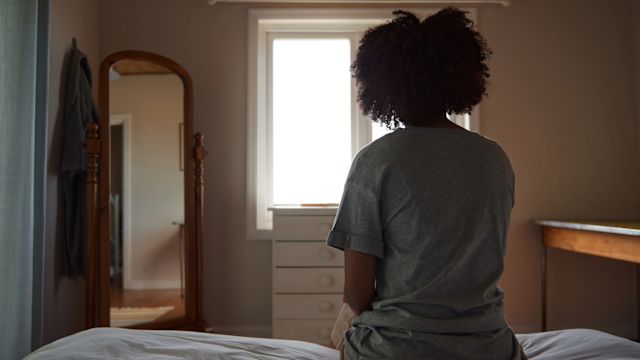The physical side effects of psoriasis are well known–from flaky, patchy skin to painful inflammation–but research shows that one of the biggest by-products of the autoimmune disease isn’t physical, but mental: The risk of depression is twice as high for people living with psoriasis, compared to the general population.
Scientists conducted an analysis of a national database and discovered that 16.5% of those with psoriasis had major depression, while those with no history of psoriasis had only an 8.9% risk. Adding to the mix, psoriasis was also linked to poorer cardiovascular health, which boosts depression risk even further. Yet while there is an association between depression and psoriasis, researchers were unable to conclude whether one causes the other – more research needs to be done.
It’s easy to guess how psoriasis could take a toll on your quality of life. People with skin conditions like psoriasis can suffer from anxiety, embarrassment, low self-esteem and substance abuse. Because depression can impact your overall health so much, it’s important to watch for it and treat it just as vigilantly as the skin symptoms of psoriasis.
Whether you or a loved one live with psoriasis, discover ways to recognize signs of depression, as well as tips on what to do about it.
Detecting Depression Symptoms
Depression signs include the following:
- Apathy or lack of enjoyment of things that used to make you happy
- Feelings of failure, guilt and/or hopelessness
- Constant sadness and loneliness
- Trouble concentrating
- Lack of energy
- Change in sleep patterns: lack of sleep or too much time spent sleeping
- Suicidal thoughts
- Easy annoyance or agitation
These signs must typically last over 2 weeks to be diagnosed as clinical depression.
If you spot these symptoms in yourself, talk to your doctor. Whether it’s your dermatologist or a family physician, reach out and let them know what you’re feeling. These health experts can point you to the resources and medications to help you manage your condition.
After seeing your physician, it’s best to take little steps towards depression recovery. Helpful tactics include: exercising regularly (which can boost feel-good endorphin production in your body), eating healthy, practicing gratitude, avoiding alcohol and substance abuse and–this is key–closely following your treatment plans for both depression and psoriasis. Clearing up psoriasis symptoms may help ease your depression.
If you’re watching a loved one with psoriasis struggle with depression, make sure to be empathetic and supportive. You may not understand what they’re going through, but it helps to listen and be a shoulder to lean on. Medical attention is the first step in the right direction, so encourage your loved one to get the help they need.





